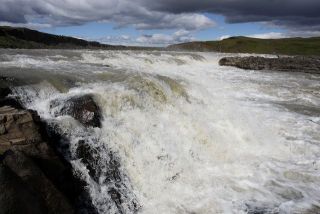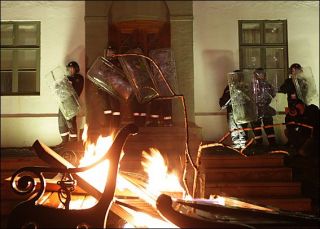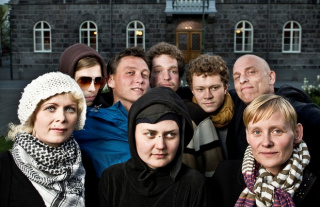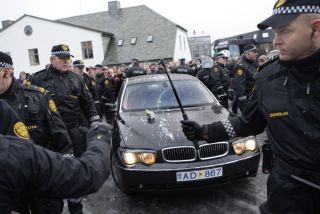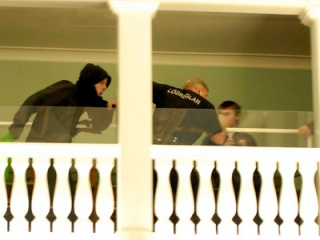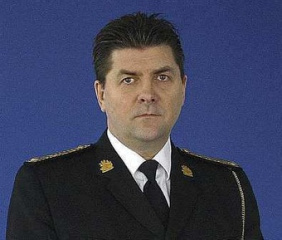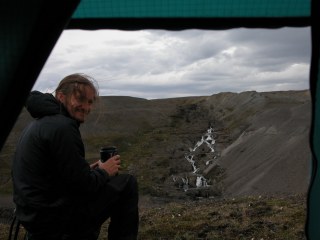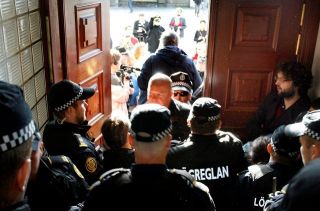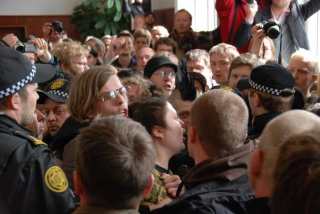'Democracy deficit'
Tag Archive
Mar 01 2011
Century Aluminum, Corruption, Cultural, Democracy deficit, Landsvirkjun, Rio Tinto Alcan, Þjórsá
Sól a Suðurlandi, the local grass roots resistance group to the projected dams in Lower Thjorsa (Þjórsá) river, call a solidarity meeting tomorrow, March 2, in Reykjavik. The meeting will focus on demands that the three projected dams be stopped and that reconciliation be reached in communities that have been split for many years because of the plans for the dams.
Read More
Mar 01 2011
Climate Change, COP15, Democracy deficit, direct action, Economic Collapse, Mark Kennedy, Repression, RVK9, Saving Iceland, Workers Rights
By Tord Björk
Social Forum Journey / Malmö-Belem-Istanbul
Abstract: This article looks at how the national mass protests against neoliberal regimes in Iceland, Tunisia, Egypt and other African and Arabic countries and the Wisconsin in the US are linked with the climate justice movement. Both national protests and the climate justice movement are developing unevenly. National protests in some hot spots, the climate campaigning more even all over the world. By looking at how countries like Denmark and its organized civil society acts it can be possible to understand how the struggle both for defensive goals and constructive solutions can strengthen each other by what lacked in Denmark but exists on the global level. That is solidarity against repression and building resistance which enables solutions uniting anti-neoliberal struggles in general and specific areas. Read More
Feb 26 2011
1 Comment
Corruption, Democracy deficit, Laws, Media bias, Repression, RVK9
TheFreshOutlook.Com
In one of the most controversial trials in Iceland, four of a group popularly known as the “Reykjavik 9” have been sentenced. A most fascinating, and what many have also termed “absurd” case in the country’s recent history has seen nine peaceful protesters accused of threatening the sovereignty of the Parliament; being charged with article 100 of the country’s penal code which deals with acts of terrorism– one that carries a sentence from a year to life in prison.
Reykjavik District Court announced its ruling of the case on February 16, amidst tremendous national furore, as the Reykjavik 9 waited for their verdict on “attacking” the Icelandic Parliament, Althingi, in December 2008. All nine defendants were acquitted of their initial charges. However, four were found guilty of rioting and were slapped with sentences ranging from fines to conditional prison sentences up to 4 months. Read More
Feb 26 2011
Corruption, Democracy deficit, Laws, Media bias, Repression, RVK9, Saving Iceland
TheFreshOutlook.Com
Since the verdict declared on February 16, support for the Reykjavik 9 has been growing, and the case seems far from over; the question now remains whether the four who have been sentenced will appeal to the Supreme Court of Iceland against the judgement by the Reykjavik District Court.
The Fresh Outlook’s Managing Editor, Shayoni Sarkar, continues to speak to key figures surrounding the Reykjavik 9. In an exclusive interview, Saving Iceland, a network of people from different nationalities championing the causes of the country, speaks about the Reykjavik 9. Read More
Feb 24 2011
Democracy deficit, Laws, Media bias, Repression, RVK9, Saving Iceland
By Tord Björk
The Social Forum Journey
Is there a possibility that we can see a new era in the struggle against repression? While repression according to many reports are growing in Europe and the world with widening social gaps there are also some changes in the way repression is organized and counteracted. Rightly addressed the situation gives new possibilities for solidarity and uniting movements that hitherto were kept separate thus building a base for democratizing society. Read More
Feb 17 2011
3 Comments
Democracy deficit, Mark Kennedy, Repression, Saving Iceland
In response to our
recent analysis of the Mark Kennedy affair (11 Feb) the Icelandic Ministry of the Interior has issued a statement denying that the National Commissioner of the Police of Iceland, Haraldur Johannessen, had previously announced to Ögmundur Jónasson, the Minister of the Interior, that the National Police were unaware of the Mark Kennedy operation within Saving Iceland and claiming they had nothing to do with the spy or his masters, i.e. the UK police. Apparently the National Police are still working on the case and the report ordered (to answer if the National Police were involved in the UK spy operation) by the Minister of the Interior and have not reached any conclusions yet.
Read More
Feb 11 2011
9 Comments
Democracy deficit, Kárahnjúkar, Mark Kennedy, Media bias, Ólafur Páll Sigurdsson, Repression, Saving Iceland
The recent spate of articles about the police spy Mark Kennedy that have appeared in the Guardian and elsewhere have greatly exaggerated the minor role of Kennedy in the Icelandic environmental movement to the point of claiming that he was a key figure pivotal in founding the movement. This may serve the immediate purpose of dramatizing the Kennedy saga but is in fact nonsense. Several weeks ago Saving Iceland sent detailed clarifications to the Guardian regarding the inaccuracies published in the paper. However, the Guardian has thus far not corrected their reporting, apart from a limited disclaimer in Amelia Hill’s article ‘Mark Kennedy played key role in forming green movement in Iceland’ where Hill states that “Saving Iceland […] disputes the level of Kennedy’s involvement.”
In other articles that are concerned with Mark Kennedy’s involvement with British groups the Guardian several times quotes British activists in saying that Kennedy did not act as a strategist or decision maker in their movement, but that he made him himself useful as a driver and an energetic facilitator in day to day logistics. One source is reported by the Guardian in even going so far to say that Kennedy was not considered the sharpest knife in the box. This would make the Guardians’ claims about his supposed vital role in Saving Iceland surprising to say the least. Read More
Jan 28 2011
2 Comments
Corruption, Democracy deficit, Economic Collapse, Economics, Saving Iceland, SIC Report
Magnús Sveinn Helgason
The Reykjavík Grapevine
January 2011
While history—meaning: ‘the past’—does not change, history—meaning: ‘the narration of past events’—does in fact change. This is because we view history through the lens of the present. As events unfold, the meaning and significance of the past changes. And because our view of the past changes we constantly need to change our history textbooks.
So, it is pretty hard to predict how any event, let alone a whole decade, will be remembered. Because we do not know what the future holds, or what academic fads will reign among future historians, it is exceedingly difficult to say with any certainty how future historians will judge this first decade of the 21st century. Still, even if we lack the necessary hindsight of history, we can make some pretty good educated guesses. Read More
Jan 26 2011
Democracy deficit, Repression, RVK9
The Guardian
Jórunn Edda Helgadóttir and Guðjón Idir
Nine protesters on trial for entering the Iceland parliament may be jailed despite a lack of evidence against them
Nine people went on trial in Iceland last week, charged with threatening the country’s parliament – a charge that has only been used once before and that carries a maximum life sentence. They were among 30 demonstrators who entered the parliament building via the visitors’ door during a small protest in December 2008 at a time when thousands of Icelanders took to the streets to express their outrage at the government’s part in the financial crisis. Read More
Jan 20 2011
2 Comments
Andrej Hunko, Democracy deficit, Mark Kennedy, Repression, RVK9, Saving Iceland
German MP, Andrej Hunko, condemns the trial of the RVK9 and calls for dialogue with Icelandic parliamentarians about the illegal police spying on Saving Iceland.
“The trial of the ‘Reykjavik 9’ is an attempt to criminalise retroactively Iceland’s democratic protests in 2008 and thus depoliticise them. The defendants include Solveig Jonsdottir, the leader of Attac,” said Andrej Hunko, Member of the German Bundestag, regarding the trial of the nine Icelandic activists. “The charges are based on the accusation of an ‘offence against Parliament’. This can mean up to life imprisonment, and carries a minimum sentence of one year’s imprisonment,” explained Mr Hunko, a member of the Parliamentary Assembly of the Council of Europe.
It was the determined mass protests in December 2008, known as the “saucepan revolution”, which finally forced the resignation of the conservative government, which was embroiled in the banking scandal. Two days before the blockade of Parliament at the heart of the current trial, 15-year-old Alexis Grigoropoulos was shot dead by the police in Greece. Across Europe, social movements had taken to the streets. Read More
